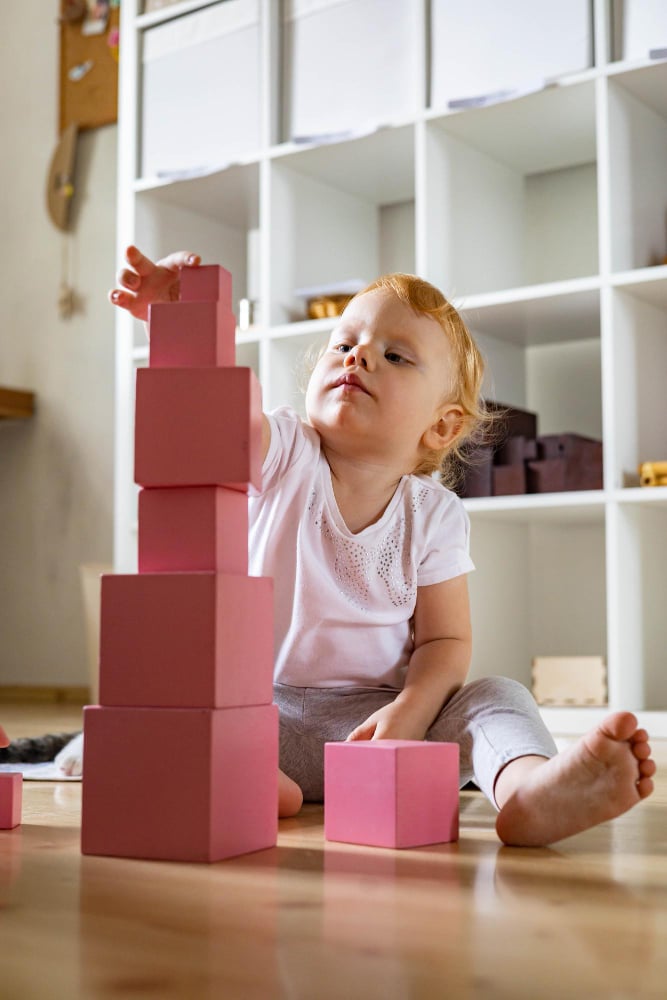Peace Education and Grace and Courtesy in Montessori Education
 In Montessori education, the #development of the whole child is emphasized, and that includes fostering peace and social harmony. Peace education, combined with grace and courtesy lessons, is a foundational part of the Montessori philosophy, designed to #nurture kindness, #empathy, and respect within children. These practices equip #students with the social and emotional tools to engage thoughtfully with their peers and the world around them, building a strong community-focused environment from an #early age.
In Montessori education, the #development of the whole child is emphasized, and that includes fostering peace and social harmony. Peace education, combined with grace and courtesy lessons, is a foundational part of the Montessori philosophy, designed to #nurture kindness, #empathy, and respect within children. These practices equip #students with the social and emotional tools to engage thoughtfully with their peers and the world around them, building a strong community-focused environment from an #early age.
What is Peace Education?
Peace education in the Montessori context extends beyond simply teaching children to avoid conflict. It involves creating a #classroom atmosphere where respect, understanding, and collaboration are valued. Maria Montessori believed that education was a key tool for achieving global peace, beginning with individual children. Peace education aims to instill in children the ability to resolve conflicts peacefully, embrace diversity, and demonstrate compassion. Students learn these principles through real-life experiences, role-playing, and discussions that encourage reflection and empathy.
Grace and Courtesy Lessons
Integral to peace education are grace and courtesy lessons, which help children develop social skills and build respectful relationships. These lessons teach children practical life skills such as how to greet others, apologize, take turns, and show gratitude. By practicing these actions, children become more conscious of their impact on others, fostering a peaceful and cooperative #classroom-environment. These lessons also instill confidence in children as they navigate social interactions, equipping them with tools for emotional self-regulation and mutual respect.
The Montessori Environment: A Peaceful Learning Space
Montessori #classrooms are thoughtfully designed to reflect the ideals of peace. They are calm, orderly environments where students are encouraged to respect their space and the materials they use. The mixed-age setup fosters a family-like community where younger children learn from older peers, and older students practice #leadership and mentoring. This community-focused design encourages cooperation and patience, essential components of peace education.
ChildCareEd's Training: "Raising Peaceful Learners: The Montessori Advantage"
For #educators looking to deepen their understanding of peace education and grace and courtesy lessons in Montessori settings, ChildCareEd offers a valuable training course titled "Raising Peaceful Learners: The Montessori Advantage." This course provides insights into how peace education is incorporated into Montessori classrooms and offers practical strategies for fostering peaceful behaviors in children.
Participants will explore the theory behind peace education, examine its benefits for young learners, and learn how to apply Montessori principles to create a peaceful learning environment. Whether you are an educator, parent, or administrator, this course will equip you with the knowledge and skills needed to raise compassionate, respectful, and peaceful learners.
Conclusion
Peace education and grace and courtesy lessons are fundamental to the Montessori approach, offering children the tools to become socially aware, empathetic, and peaceful individuals. Through lessons that promote respect and collaboration, Montessori classrooms cultivate a peaceful atmosphere where students can thrive emotionally and academically. With resources like ChildCareEd’s "Raising Peaceful Learners: The Montessori Advantage," educators can gain the knowledge and expertise needed to create environments that nurture the next generation of peaceful leaders.
- CDA Bridge Bundle: Infant/Toddler without Portfolio Review
- Authentic Montessori in Action
- Raising Peaceful Learners: The Montessori Advantage
- Intro to Montessori: Philosophy, Principles, and Practices
- CDA Bridge Bundle: Preschool without Portfolio Review
- CDA Bridge Bundle: Family Child Care without Portfolio Review
- Montessori Foundations